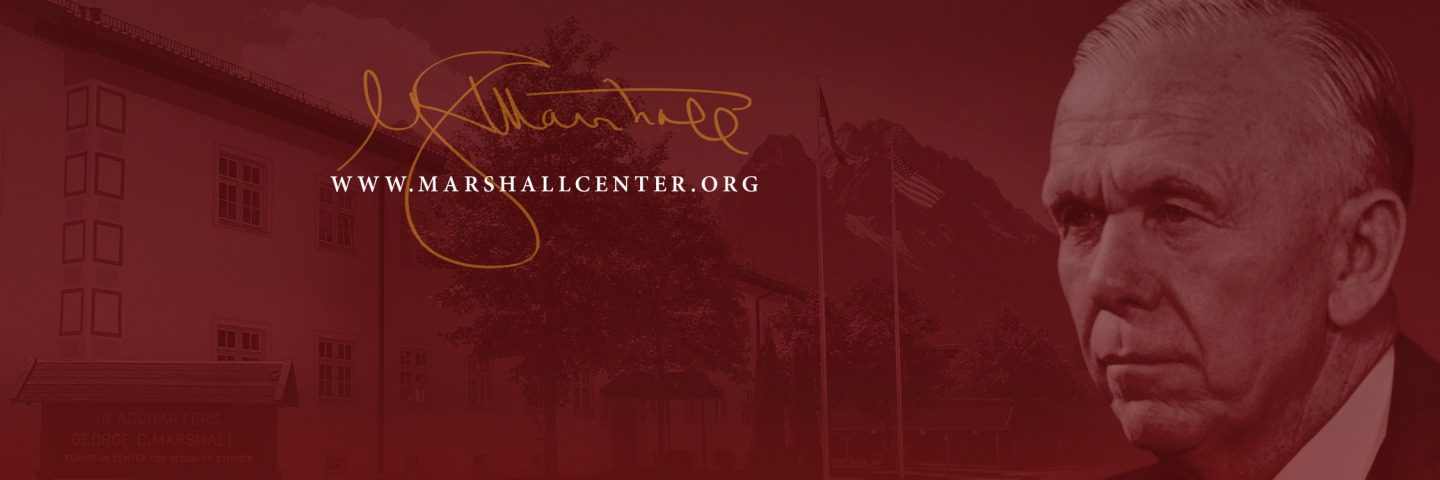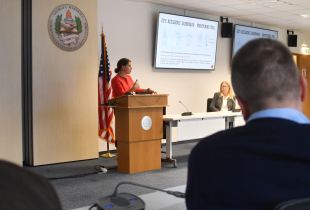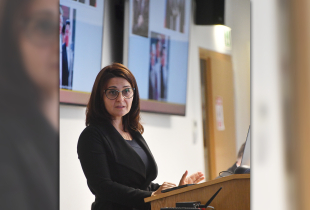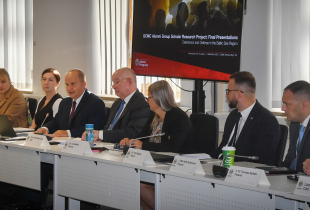
Strengthening Cybersecurity: Alumna Scholar Promotes Public-Private Solutions
On the fifth anniversary of North Macedonia’s accession to NATO, Alumna Scholar Liljana Pecova shared her research focused on strengthening cybersecurity through public-private partnerships in the Western Balkans at the Marshall Center on March 27, 2025.
Pecova, a 2023 graduate of the Program on Cyber Security Studies (PCSS), is the 112th Marshall Center Alumni Scholar and the first to present a joint project through a unique collaboration with a fellow alumna she met during the 2024 Ohrid Regional Security Alumni Forum. Her partner, Migena Pengili, Ph.D., a 2007 graduate of the Program on Applied Security Studies and a 2021 graduate of the Southeast Europe Forum, will attend the Marshall Center later this year as an alumni scholar.
“This is a unique project, a pilot in many ways,” said Pecova, who brings more than 20 years of experience in law enforcement, data protection, and digital governance. “We come from different countries, backgrounds, and perspectives, but we are united by a belief in the power of public-private partnerships to strengthen cyber resilience.”
The pair’s shared interest in cybersecurity led them to launch a distributed research project exploring the applicability of the U.S. Information Sharing and Analysis Center (ISAC) model in the Western Balkans.
Pecova’s presentation offered an in-depth look at how ISACs in the U.S. have evolved over time, from post-9/11 homeland security priorities to a more decentralized, sector-driven cybersecurity ecosystem. She emphasized the need for tailored approaches in the Western Balkans, where national cybersecurity strategies and institutional frameworks are still emerging.
Marshall Center faculty members Sean Costigan, Ph.D., and Scott Handler, Ph.D., who served as academic advisors for the project, praised the innovative structure of the research partnership.
“This collaboration exemplifies the Marshall Center’s mission to build trusted networks across borders,” said Handler. “It’s a model of what happens when academic insight meets practitioner experience.”
Pecova’s work will contribute to a final joint paper set to be completed later this year when Pengili completes her portion. The project also builds on Pecova’s earlier contributions to the alumni community, including a successful cyber exercise conducted during the 2024 Ohrid forum.
“March 27 is five years since North Macedonia joined NATO,” Pecova noted during her opening remarks, remarking on a moment of personal and national pride. “It feels like destiny to be here today, contributing to a regional security conversation that matters deeply to my country and the region.”
The Alumni Scholars Program was launched in 2004 and has supported more than 100 alumni in conducting original, policy-relevant research on transnational and regional security issues. Pecova’s project continues a tradition of advancing dialogue, partnership, and shared understanding across the Euro-Atlantic and Eurasian regions.


